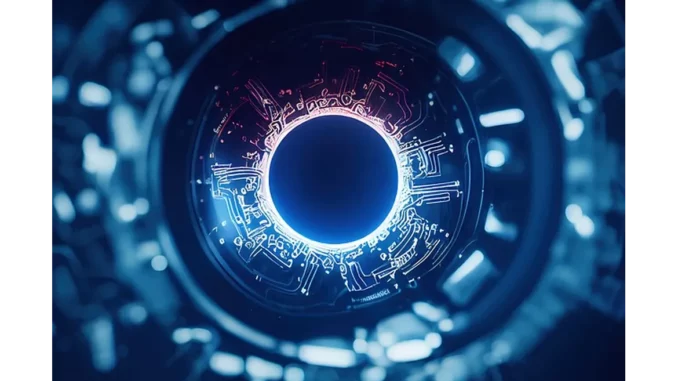
In an unprecedented development, artificial intelligence (AI) has been honoured with two Nobel Prizes for its groundbreaking contributions to the field of medicine. This recognition not only highlights AI’s transformative influence on healthcare but also heralds the dawn of a new era where technology and medicine collaborate to push the boundaries of what was once deemed unachievable.
The Nobel Prize in Physics was awarded to Geoffrey Hinton and John Hopfield for their seminal work in the development of artificial neural networks. These networks, which draw inspiration from the human brain, form the essential infrastructure for contemporary AI systems. Their ability to learn and execute complex tasks has profound implications for the medical domain, offering novel potential in diagnostics, treatment, and patient care. The utilisation of AI in medicine, particularly in the analysis of vast datasets with remarkable speed and precision, is one of its most promising applications. This skill is especially vital in areas like genomics, where AI can identify genetic mutations associated with diseases, paving the way for personalised medicine. By customising treatments to an individual’s genetic profile, AI promises not only to enhance outcomes but also to diminish adverse effects.
Moreover, AI’s burgeoning role in drug discovery cannot be overstated. Through the simulation of molecular interactions, AI identifies potential drug candidates and forecasts their efficacy, substantially reducing the time and expense involved in conventional drug development processes. The 2024 Nobel Prize in Chemistry acknowledged AI algorithms such as AlphaFold, which predict protein structures and expedite drug discovery, underscoring AI’s transformative impact on pharmaceutical research. However, the integration of AI into medicine is not without its hurdles. Ethical considerations, particularly concerning data privacy and consent, are of paramount importance. The utilisation of patient data to train AI systems must be conducted transparently, with a firm commitment to respecting individual rights. Furthermore, the potential for algorithmic bias necessitates rigorous testing and validation to ensure equitable care for all patients.
Geoffrey Hinton, one of the esteemed Nobel laureates, has expressed concerns about the broader implications of AI. He warns that as AI systems grow more sophisticated, they could pose existential threats if not meticulously controlled. This cautionary perspective echoes the sentiments of past Nobel laureates who have highlighted the dual nature of scientific progress. Just as the discovery of radioactive atoms catalysed both medical advancements and the creation of nuclear weapons, AI possesses the potential for both monumental benefit and significant harm. Addressing these concerns requires a collaborative approach. Policymakers, researchers, and healthcare providers must join forces to establish guidelines that ensure the responsible development and deployment of AI. This involves fostering an environment of continuous learning and adaptation, where AI systems are consistently updated and monitored to align with evolving ethical standards.
In the forthcoming years, AI’s role in medicine is poised for further expansion. The notion of digital doctors, capable of delivering real-time analysis and recommendations, is swiftly moving from concept to reality. These AI-driven systems could serve as invaluable resources for clinicians, offering insights that enhance decision-making and elevate patient care. Nonetheless, the irreplaceable human element remains, as empathy and understanding are integral to the healing process. As we stand on the precipice of this technological revolution, it is imperative to approach AI with both optimism and prudence. The Nobel recognition of AI’s contributions to medicine underscores its potential for positive transformation, yet it also serves as a reminder of the responsibilities accompanying such power. By prioritising ethical considerations and fostering a spirit of collaboration, we can harness AI’s potential to forge a future where technology and medicine synergise for the betterment of humanity.
The awarding of the Nobel Prizes to AI pioneers signifies a pivotal moment at the intersection of technology and medicine. As AI continues to advance, it offers unparalleled opportunities to elevate healthcare and enrich the human experience. By embracing this potential while remaining vigilant to the challenges it presents, we can ensure that AI acts as a catalyst for positive change in medicine and beyond.


Be the first to comment